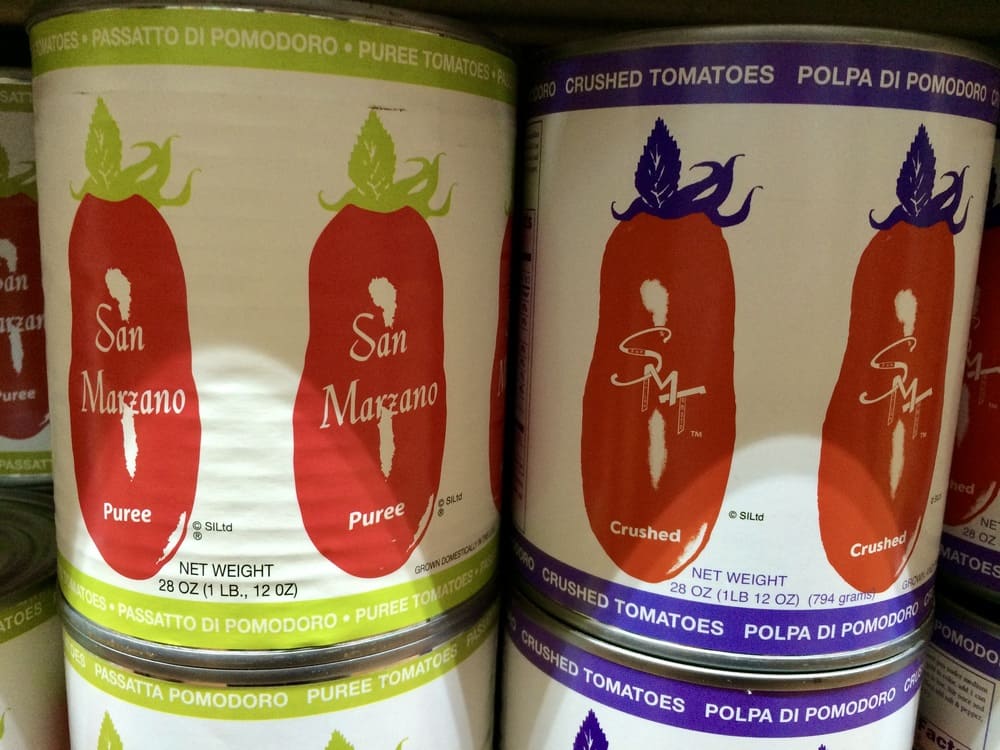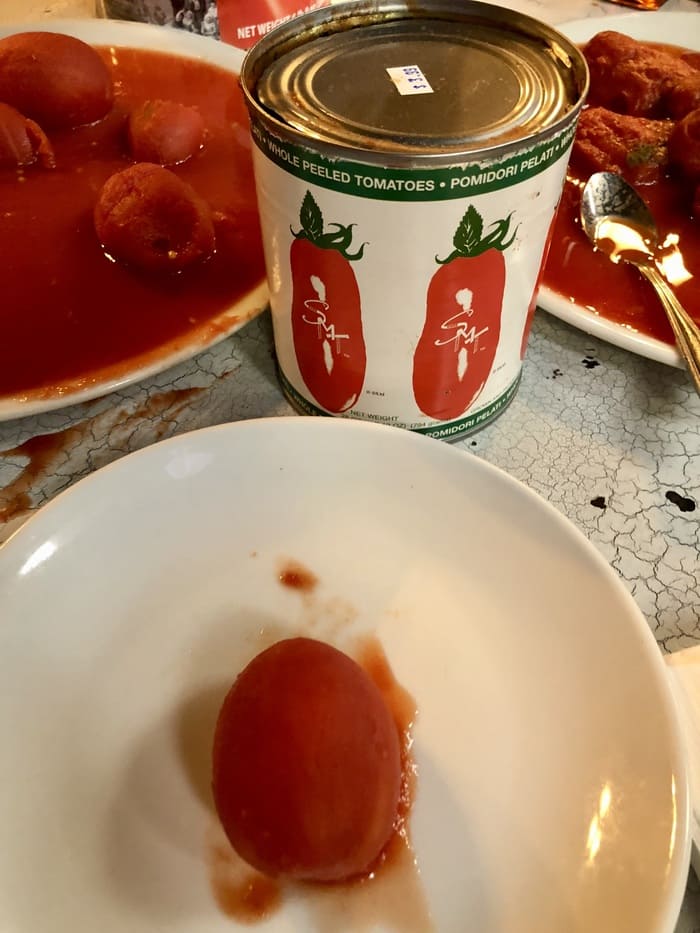
A fresh San Marzano tomato lawsuit questions the veracity of one of the most iconic can labels on the planet. We’ve all seen it in food magazines, food TV shows, and in the aisles of our grocery stores, yet the product itself is somewhat shrouded in mystery. Simpson Imports is the company behind the quaint, hand-drawn identity of a tomato once marketed as a San Marzano. Around 2015, they redesigned their labels with the letters SMT. Many undestandably associated these letters with the words San Marzano Tomato, but a closer look revealed something else. If you look closely enough, you’ll see the words “San Merican Tomato,” a phrase that’s essentially meaningless. I’ve reached out to Simpson Imports in the past to get some clarification, but never heard back. I can only assume they made the change to avoid legal issues. Yet here we are, nine years later, with a fresh lawsuit. Apparently some confused tomato lovers fell into the San Marzano trap and blame Simpson’s misleading packaging.
The Cento Lawsuit
This isn’t the first legal issue regarding San Marzano tomatoes and it certainly won’t be the last. In 2020, a class action lawsuit was brought against Cento, a NJ-based tomato company that harvests and cans tomatoes in southern Italy. The plaintiffs claimed to have been confused by the can labels because they claimed to be “certified” despite not being connected to the European Union’s official DOP certification. The case was eventually dropped.
San Marzano Confusion
It’s no surprise that there are lawsuits surrounding tomato can labels because they’re pretty dang confusing. I tried to explain it in this Serious Eats article back in 2018. In short, the San Marzano tomato was created in the early 1900s to serve a growing diaspora of Southern Italians in the Americas. The fruit is long and slender, with low water content and small seed locules. The San Marzano tomato was named for the town in which it was first grown, which is renowned for its rich volcanic soil. In the 1970s, massive blight killed off much of the San Marzano crop. Similar tomatoes followed in its footsteps and in the 1990s the San Marzano cultivar was awarded DOP classification.
Not all San Marzano tomatoes fall under the DOP categorization. To be considered a San Marzano DOP, the tomato must fit certain conditions:
- It must be grown from a San Marzano seed
- It must be grown in the Agro Sarnese-Nocerino region of Italy
- It must be manually harvested
- Tomato vines must be grown vertically so fruits can be harvested at their peak of ripeness
- The can must show a unique index number
- The can must show the insignia of the San Marzano consortium and the European Union’s DOP logo
San Merican?
Since the Simpson Imports label doesn’t have any false DOP claims, it’s unlikely this San Marzano lawsuit will go very far. American tomato companies fight an uphill battle with their Italian counterparts because they don’t have quite as strong a cachet. The biggest problem is that consumers have somehow become convinced that this quaint label must belong to the most authentic Italian tomato and therefore it must be delicious. The weird “San Merican” moniker isn’t really fooling anybody, but it’s providing a kind of alibi for the label that’s probably enough to put this lawsuit to bed. The truth is that the tomato inside the can doesn’t look anything like the drawing on the outside. But we all know how powerful good marketing can be and this is a case of some very clever packaging and suggestive marketing. Heck, the label even says “Grown domestically in the U.S.A” on the bottom!


